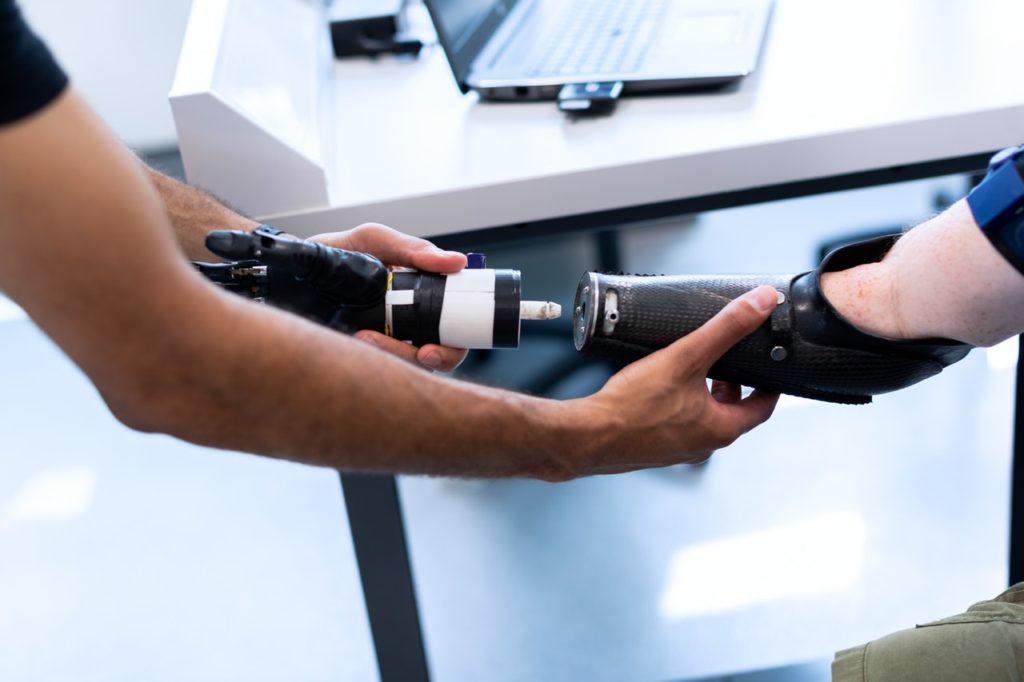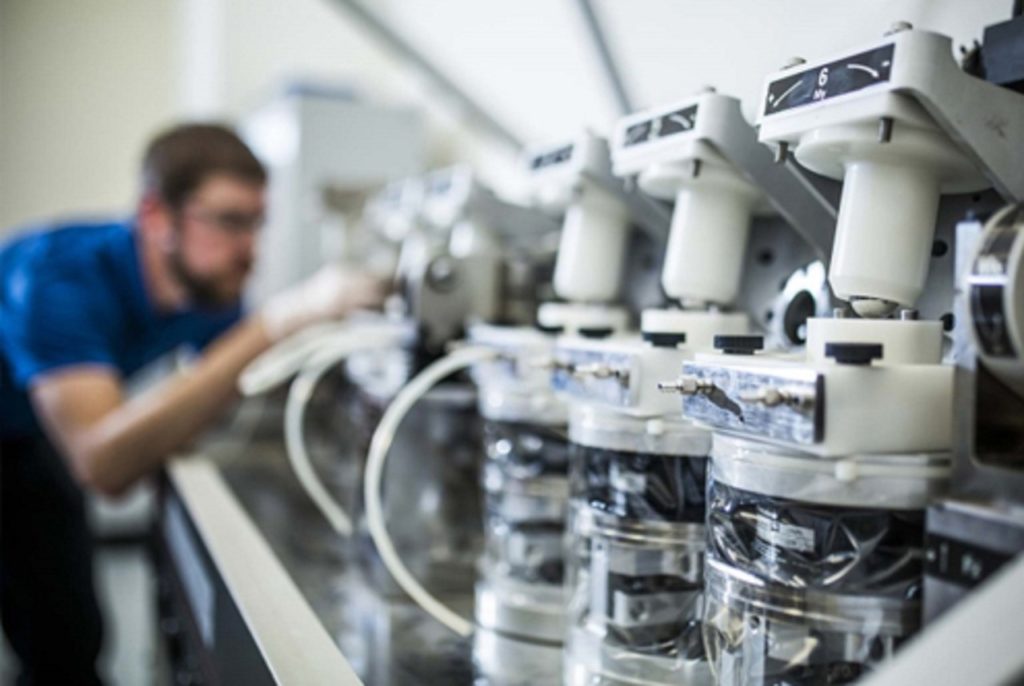Due to the recent situation that is happening all over the world right now, we thought it was appropriate that we did a mechanical vs biomedical engineering comparison this week!
First, if you’re looking to launch your own blog and start writing articles yourself, no matter what the subject, you can launch your blog with Bluehost for just $3.95/month.
Start creating content and launch your blog with Bluehost.
Hopefully this might serve as some light reading while everyone is indoors or at home, enjoy!
Mechanical Engineering
Mechanical engineering is an engineering discipline that combines mathematics and engineering physics principles with material science to analyse, design, maintain and manufacture mechanical devices/systems. It is known as one of the broadest and oldest of the engineering fields.
The field of mechanical engineering demands an understanding of the main areas including dynamics, mechanics, thermodynamics, electricity, structural analysis and materials science. Mechanical engineers will also use modern tools such as CAD (Computer Aided Design) programs like AutoCAD, Revit, Inventor and Fusion 360, CAM (Computer Aided Manufacturing), and product/project management to analyse and design manufacturing plants, HVAC systems, robotics, watercraft, weapons, medical devices among other products. It is the sector of engineering that includes the production, design, operation and maintenance of machinery.
Biomedical Engineering
Biomedical engineering (BME), also known as medical engineering, is the utilization of of engineering design concepts and principles to biology and medicine for the purpose of healthcare, (e.g. therapeutic or diagnostic). This field hopes to narrow the gap between medicine and engineering, combining the troubleshooting and design skills of engineering with medical/biological sciences to further healthcare treatment, including monitoring, diagnosis and therapy.

Also covered under the responsibilities of a biomedical engineer is the overseeing of current medical machinery in hospitals while satisfying the relevant standards in the industry. This involves procurement, recommending equipment, preventative maintenance and routine testing, a job also referred to as a biomedical equipment technician (BMET) or a clinical engineer.
Mechanical vs Biomedical Engineering Careers
Mechanical Engineering
While having great career opportunities, a mechanical engineering career also offers outstanding salaries. In 2018, mechanical engineers received an average yearly wage of $87,370, over double the median pay for all other professions. Engineering and architectural managers received an average yearly wage of almost $141,000 over the same time period. You can absolutely apply for nearly all of these well-paying opportunities with a bachelors degree, a lot of senior roles might need a masters degree.
Careers in mechanical engineering present you with the opportunity to drive discovery, solve problems and change the world. As an example, a mechanical engineer employed in the aerospace industry may develop robotic probes that are used to research the furthest parts of the solar system. An engineer employed by a manufacturer of medical devices may create new tools to diagnose/detect diseases earlier and in turn hopefully save some lives.
Mechanical engineering jobs do carry great prospective salaries. As the BLS states, mechanical engineering technicians received almost $18,000 more during 2018 than the average salary for all other professions. This job generally only needs a post secondary certificate or associate degree. If you can further your education and pursue a specialization, this can result in even higher prospective salaries. For example, chemical engineers, aerospace engineers and computer hardware engineers all received average salaries well above $100,000 during 2018. Petroleum engineers have the opportunity to receive even more than that, with an average yearly wage during 2018 coming out at more that $137,000!
Biomedical Engineering
If you aspire to merge your passion for engineering with the ability to create medical products that save lives, a biomedical engineering career might suit you. Advancements in modern technology and the necessity to care for a population that is aging, make biomedical engineers one of the essential professions in the country.
The BLS (Bureau of Labor Statistics) anticipate that there are almost 20,000 biomedical engineering jobs in the USA in 2018, and that they will increase at a growth rate of 4% by 2028. Biomedical engineers are employed in universities, medical institutions, research and manufacturing facilities among others. They create medical devices that can be implanted, surgical robotics tools, 3-D printing for repairing organs and other life-saving creations.

Earning a master of engineering with a specialization in biomedical engineering can greatly help prospective engineers thrive in many different rewarding careers. Employees that possess a masters degree make a median salary of $11,600 more every year compared to professionals that have a bachelors degree. A master of engineering can help graduates obtain:
- Eligibility to apply for prominent leadership jobs
- The courage to take on more responsibility
- An opportunity for upward mobility in your current company
- The opportunity for higher pay
- Increased experience/knowledge, resulting in expanded job duties and satisfaction
If you are wondering what you can specifically do with a degree in biomedical engineering, below are some of the more interesting roles that are available in biomedical engineering:
- Biomaterials developer
- Manufacturing engineer
- Independent consultant
- Doctor
- Biomedical researcher/scientist
- Rehabilitation engineer
- Medical technology developer
Mechanical vs Biomedical Engineering Education
Mechanical Engineering
A mechanical engineering career demands at the minimum a bachelors degree. These courses involves teaching in various parts of systems, from power systems to computer programming, and they also cover more technical aspects like thermodynamics, hydraulics and fluid mechanics. Mechanical engineering students are also required to have a basic knowledge of electrical engineering, civil engineering and chemical engineering. A lot of degree programs involve coursework in other areas where mechanical engineering is utilized quite often, like environmental science or business. Online course in business and technology among all other topics can be taken on LinkedIn Learning, you receive a certificate at the end of the course, and its free for the first 30 days!
Students that are leaning towards research and development opportunities in private industry or academia may go on to obtain a masters or PhD in mechanical engineering. Post-graduate courses in mechanical engineering generally include longer form research projects in a specialized field, finishing in a dissertation or thesis. Schools of engineering typically have an accreditation from the Accreditation Board for Engineering and Technology (ABET).
All mechanical engineers that are employed in every state must obtain a license as a PE (Professional Engineer). The PE licensure requirements are: at least a bachelors degree received from a 4 year institution with ABET accreditation and experience working under the management of an experienced licensed engineer. Hopeful engineers must also do well (i.e. pass) in the FE (Fundamentals of Engineering) and PE (Principles and Practice of Engineering) exams, which are provided by the National Council of Examiners for Engineering and Surveying.
Biomedical Engineering
A biomedical engineering bachelors degree is typically the minimum educational requirement needed to become a biomedical engineer. To be accepted into these courses, students have to possess a GED or high school diploma, and their scores from the ACT or SAT. These courses merge coursework in general engineering with chemistry and biology programs. Students in a bachelors degree program in biomedical engineering have a choice from a variety of specific areas, and including medical optics, bioinstrumentation, biomechanics, cell tissue and biomolecular engineering.
The following are some of the typical courses found in biomedical engineering:
- Statistics and calculus
- Physiology
- Biology
- Engineering
- Organic chemistry

Similar to mechanical engineering a Professional Engineering (PE) license can be obtained in order to sell engineering services to the public.
Mechanical vs Biomedical Engineer
Mechanical and biomedical engineers generally receive salaries that are quite similar but have different concentrations and methods. We go over the outline of mechanical vs biomedical engineering careers, the salaries of each profession and potential job growth, and the tasks specific to each.
Both mechanical and biomedical engineers develop and create design plans for devices/products within the scope of their discipline. Mechanical engineers focus on solving technical problems and product manufacturing, while biomedical engineers focus on various specific fields that improve methods of developing to treat and diagnose medical conditions and further medical research.
Salaries: (2016)
- Mechanical engineers: $84,190
- Biomedical engineers: $85,620
Responsibilities of Mechanical vs Biomedical Engineers
Mechanical engineers concentrate on creating new machines and devices or redesigning existing equipment. They may seek to improve the performance of the products or to expand their functions and strive to discover various ways to utilize mechanical machinery to perform particular jobs. Mechanical engineers typically concentrate on creating/designing plans, ensuring that devices are manufactured effectively and testing products, biomedical engineers complete a broader range of jobs that includes publishing and presenting information about their conclusions to their research, training medical staff and creating different methods to increase to success rate of medical treatments. The medical engineers might also be tasked with the design of products that are/will utilized in medicine, this range of devices/products can vary from diagnostic equipment to software to different materials.
Mechanical Engineers
For mechanical engineers, it is a necessity to have a bachelors degree in mechanical engineering or a similar discipline. Those who would like to look for promotion opportunities might also need to go through graduate studies and obtain a Professional Engineer (PE) license. They do spend a lot of time in an office environment and typically work in research and manufacturing. The primary role of mechanical engineer is to produce mechanical devices and machines. They work on a wide range of products including batteries, tools and robots.
Job responsibilities of a mechanical engineer include:
- Developing new machines that can perform specific functions
- Producing technical materials and schematics using computer design software
- Performing research
- Evaluating prototypes
- Travelling to locations where large machines are installed to assess performance issues
- Altering design plans of existing products to improve forms
Biomedical Engineering
Biomedical engineers specialize in producing healthcare products, including artificial organs and medical equipment. They must have a bachelors degree and typically concentrate on studying biomedical engineering. They combine analytical and creative skills to develop ways to improve healthcare treatment options. They also need strong computer skills since their work can involve creating computer software that is used to operate medical equipment. Some biomedical engineers can work in manufacturing and research while others work for academic institutions.

Job responsibilities of the biomedical engineering include:
- Developing new types of medical equipment
- Researching biological processes
- Analyzing statistical data
- Performing medical research
- Determining how to provide health care more effectively
- Reducing the materials needed to make bones, joints and artificial organs
Thank you very much for being here – we appreciate you taking the time to read our content. If you have anything to add, please feel free to leave a comment down below, and sign up to our newsletter for more of the same!
You can also follow us on LinkedIn, Facebook, Twitter, and Instagram so you can stay up to date.


